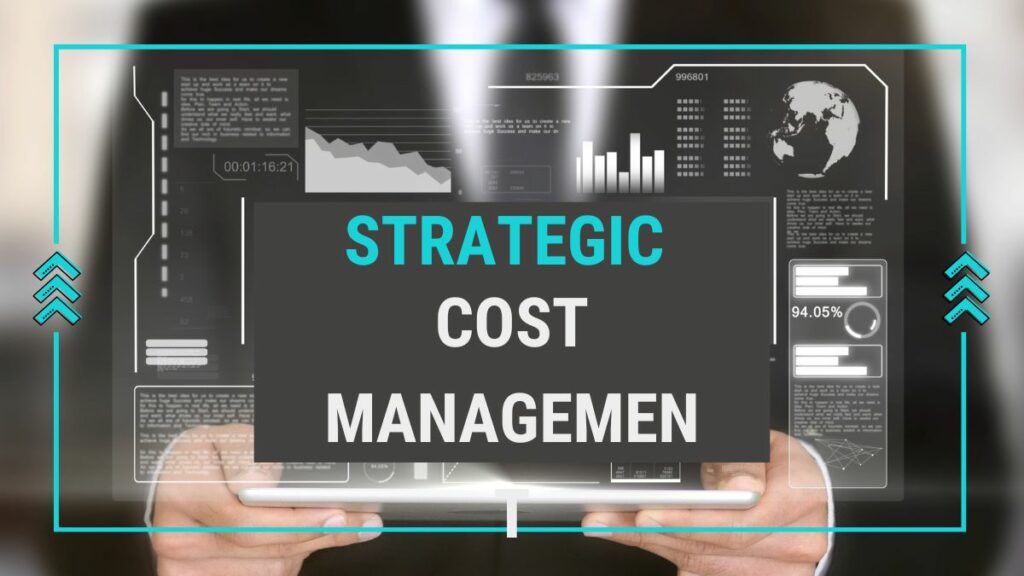In today’s highly competitive business environment, strategic cost management is not just necessary but a strategic tool that can differentiate successful companies from those struggling.
In this regard, the CMA role in business cost management is crucial as it covers accounting, financial management, and business environment operations. CMA professionals help businesses thrive over the long term by incorporating strategic cost management into decision-making activities.
This article includes the strategic role CMAs have over businesses in cost management and their contribution to enhancing a firm’s long-term financial stability and competitive advantage in the market. Let’s get into the discussion.
Key Notions of Strategic Cost Management
Before exploring the specific contributions of CMAs, it’s important to understand what strategic cost management is.
While conventional cost management provides a narrow perspective of minimising costs, strategic cost management, as the phrase implies, has a long-term focus on achieving organisational goals through efficient resource utilisation.
However, cost management strategies do not accept the idea of parity with short-term financial performance. They examine the consequences of cost decisions for market position, customer needs and satisfaction, product/service quality, and innovation level on a longer perspective.
The aim here is to reduce costs and create value and enhancement throughout the value chain, from procurement and production to marketing and distribution.
Business Success and Cost Management: The Role of CMA
Check out the CMA role in business cost management:
Cost Analysis and Reporting
A skilled CMA can analyse and report costs in detail with the training of a CMA USA course. In this regard, they use multiple techniques, such as cost volume profit analysis, variance analysis, etc. A CMA helps trace the relevant cost drivers and patterns, which are vital for optimising resource utilisation and process re-engineering activities.
Risk Management
Risk management is integral to strategic cost management, and CMAs play a key role in identifying and mitigating financial risks. Whether it’s currency fluctuations, changes in supplier pricing, or economic downturns, businesses face numerous risks that can affect their cost structure and profitability.
CMAs use their analytical skills to assess these risks and develop strategies to minimise their impact. By integrating risk management into the cost management process, CMAs help businesses remain agile and responsive to changing market conditions.
Budgeting and Forecasting
Effective strategic cost management requires accurate forecasting and budgeting, key areas of expertise for CMAs. They develop financial models that predict future costs and revenues, helping businesses plan for growth while managing financial risks.
This forward-looking approach allows companies to adjust their strategies based on anticipated changes in the market, economic conditions, or operational requirements.
Implementation of Activity-Based Costing (ABC)
Cost Management Accounts (CMA) practitioners use a sophisticated management tool, Activity-Based Costing (ABC). Conventional costing systems tend to assign overhead costs to products and services on a simplistic basis, which distorts product costs.
ABC provides the business with the perspective of cost allocation. This method finds particular applicability in industries with high excess capacity, such as manufacturing or service activities. By empowering managers to identify cost drivers, CMAs assist in directing energy towards value-creating activities and reducing wastage.
Performance Measurement and Analysis
CMA gives immense prominence to developing and employing KPIs for the ‘financial’ performance of organisations. The performance analysis of those KPIs predominantly uses these indicators to ascertain the extent to which organisational performance levels can be enhanced and situational factors addressed.
Cost Reduction and Optimisation
CMAs are both willing and able to implement cost reduction and optimisation measures. Organisations seeking to reduce costs will obtain assistance with process design, more favourable agreements with suppliers, and other initiatives related to reducing expenses.
Strategic Decision Making
CMAs, whose insights and analysis of the pertinent area facilitate the strategic decision-making process, also make it easier. For instance, it is possible to analyse potential initiatives monetarily, determine which initiatives to adopt from proposed investment opportunities, and eventually identify further avenues for growth.
Enhancing Operational Efficiency
In addition to controlling costs, CMAs also emphasised increasing operational efficiency. They examine business processes and procedures to find best practices.
They focus on increasing productivity and improving supply chain management, production processes, and resource management to enable CMAs’ companies to be efficient without compromising quality and customer satisfaction.
Concluding Thoughts
As you can see, strategic cost management and the role of CMAs are highly important in determining business success and cost management strategies. Therefore, choosing it as a career option after graduation can benefit individuals.
In this regard, consider the CMA USA Course from Imarticus Learning for the best educational guidance you can ever have. You will get placement opportunities along with comprehensive learning. Contact now for admission!

